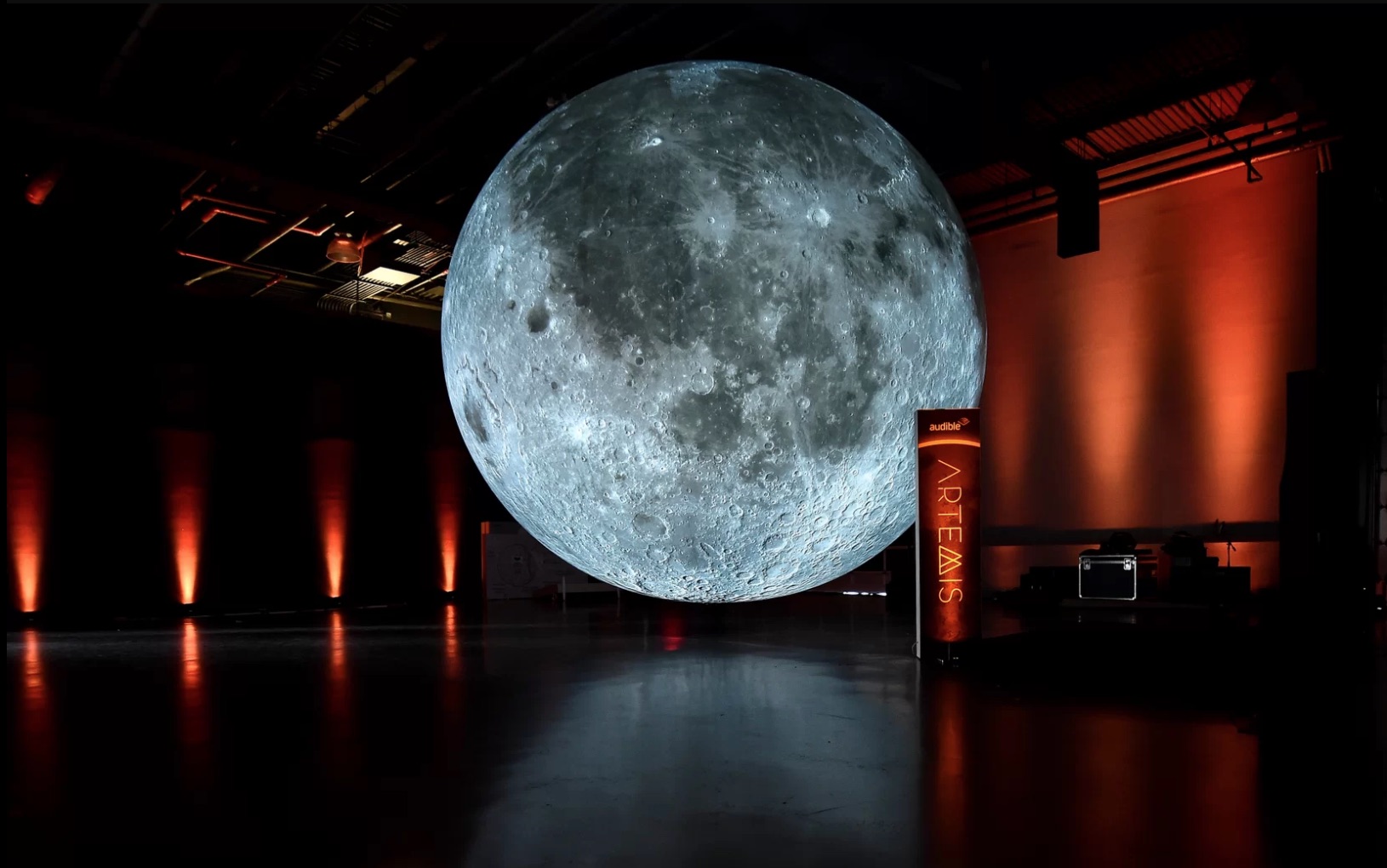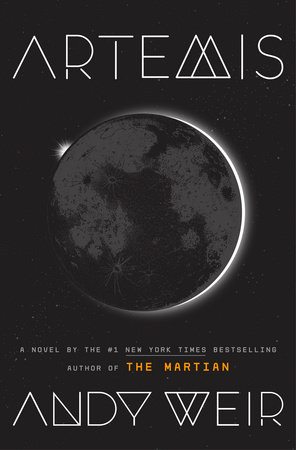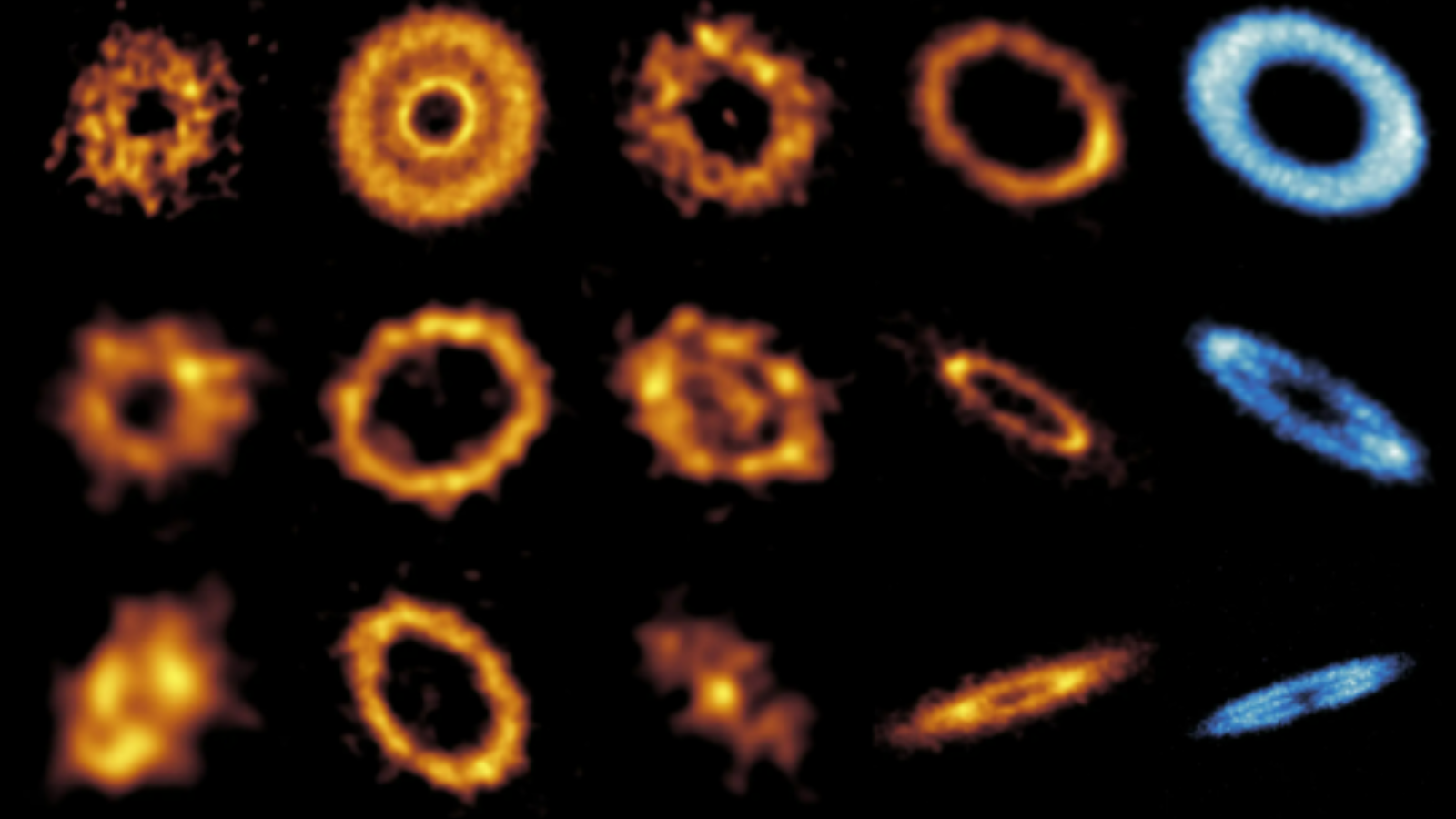Book Review: Andy Weir's 'Artemis' Is a Fun Romp Through a Fictional Future Moon Colony

Warning: This review contains minor spoilers for the novel "Artemis" (Crown, 2017).
One recent trend in science fiction has been to look at class or group conflict in outer space, as evidenced in the TV series "Star Trek: Discovery" and "The Expanse, " which both explore how outsiders and the disadvantaged interact within their futuristic societies.
It was refreshing to see this theme continued in "Artemis," the new novel from "The Martian" author Andy Weir, released Nov. 14. In the book, Jasmine "Jazz" Bashara, a porter, sleeps in a room so small that it's hard to stand up in it. She makes only a trickle of money in the realistic depiction of a moon base and derides the rich space tourists who can afford luxuries such as private bathrooms and food not grown in vats. [Andy Weir's 'Artemis': What It's Like to Devise (and Narrate) a Fictional Lunar City]
It's also a relief to have a heroine and narrator who is female; in an era when participants in space conferences are calling for more diverse panels and there's a push for more women in space research, we definitely need more strong female characters in space novels. Weir has said in interviews, however, that he didn't initially set out to write a female lead, and he asked several women to do pre-reads of his book to make sure he got that perspective right. Although there was a weird scene involving Bashara dressing up as a prostitute to get into a hotel room, overall, she is strong and funny, and a very capable machinist who speaks Arabic and English fluently.
Not-so-secret heist
In between porter jobs, Bashara smuggles to make some extra money. There are hints of a larger, more noble reason for her smuggling job as well. But because it's revealed late in the book, we won't say more here.
The story opens with Bashara failing a crucial test that would have allowed her to do spacewalks to earn some extra income legally. While she is recovering from the disappointment, she receives an opportunity from a not-so-legal contact to do a special heist on the moon that involves using a spacesuit to perform sabotage.
Skip ahead a few dozen pages, and you see the hilarity of trying to conceal a heist on a very public moon base, in an alien environment (although Bashara did take up residence on the moon base at a young age). Bashara, of course, is known to just about everybody because her job involves ferrying stuff from place to place. How can she mask herself in the spacesuit, which is obviously assigned to her and her only? How does she cover her tracks in a place where footprints are never erased due to wind or water? How does she account for lunar gravity when handling delicate machinery?
Breaking space news, the latest updates on rocket launches, skywatching events and more!
We all remember how masterful "The Martian" was in answering engineering questions such as these, and Weir once again excels at the details. Whether he's describing how to weld pieces together, how a lunar resource harvester works or even the best way to disable communications devices, his attention to the small stuff keeps the fictional story grounded in reality. [Elon Musk Calls for Moon Base]
Unfortunately, his characterization in "Artemis" is not as strong, especially when it comes to separating good from evil characters, or depicting potential suitors for Bashara. At times, Bashara's swearing and engineer's mind make her hard to distinguish from Mark Watney, the hero of "The Martian." Also, Weir always likes focusing on the present in his stories; the past is usually used just incidentally, to move the plot along.
That said, Weir's world building is a lot of fun. Modules on the lunar space station are named after famous moonwalkers. He explains how tourist visits work at the Apollo 11 moon landing site, carefully preserving Neil Armstrong's and Buzz Aldrin's footprints. And there are the fun messages back and forth between Bashara and Kelvin, a pen pal who lives in Kenya — a nation that has a strong space program in the world of "Artemis" due to its location at the equator. While the connection between the pen pals seems incidental at first, as the novel develops, their relationship becomes crucial to the plot's development.
Perhaps the greatest strength of "Artemis" is its believability. Reading his novel, I could see why Kenya could be a space powerhouse, how a lunar colony could be built and even how the technology of today could progress to what is described in the 2070s — the approximate time frame of the book. This makes "Artemis" an entertaining read for space geeks, and a strong follow-up to "The Martian." Definitely grab a copy to read over Thanksgiving weekend.
You can buy "Artemis" and its audiobook on Amazon.com.
Follow us @Spacedotcom, Facebook and Google+. Original article on Space.com.

Elizabeth Howell (she/her), Ph.D., was a staff writer in the spaceflight channel between 2022 and 2024 specializing in Canadian space news. She was contributing writer for Space.com for 10 years from 2012 to 2024. Elizabeth's reporting includes multiple exclusives with the White House, leading world coverage about a lost-and-found space tomato on the International Space Station, witnessing five human spaceflight launches on two continents, flying parabolic, working inside a spacesuit, and participating in a simulated Mars mission. Her latest book, "Why Am I Taller?" (ECW Press, 2022) is co-written with astronaut Dave Williams.

